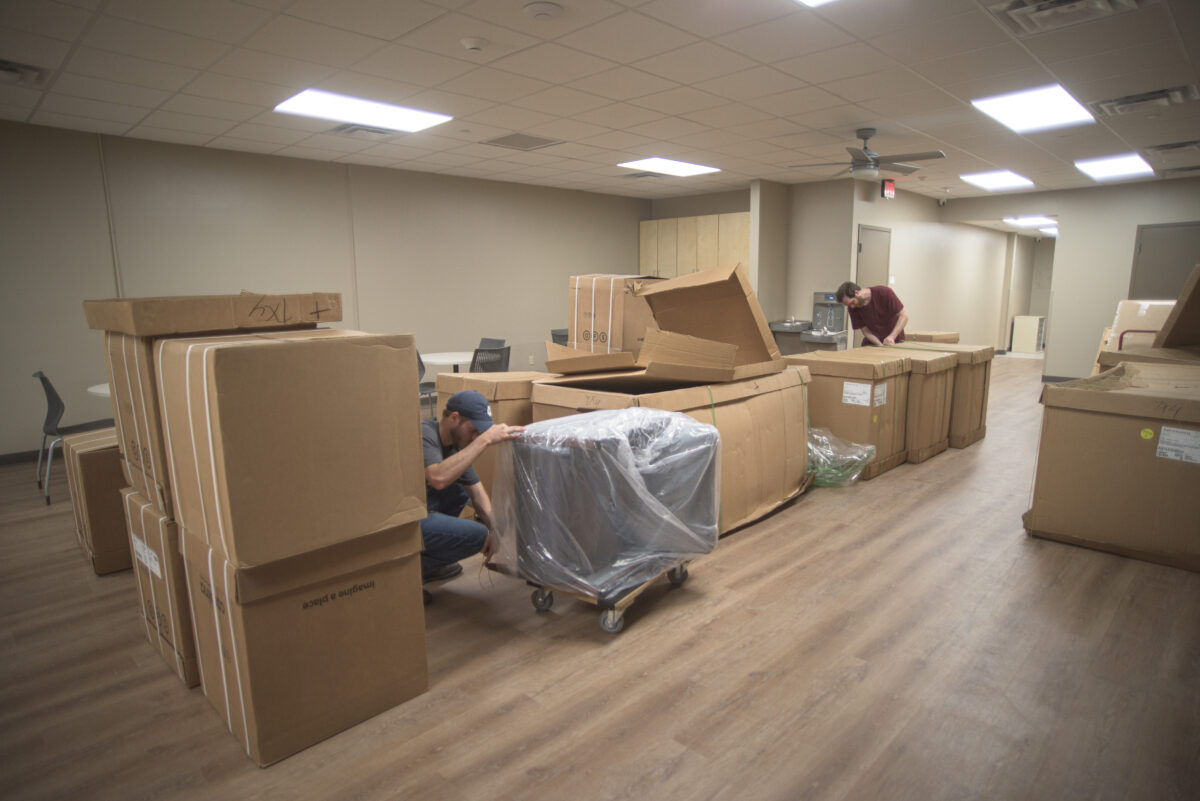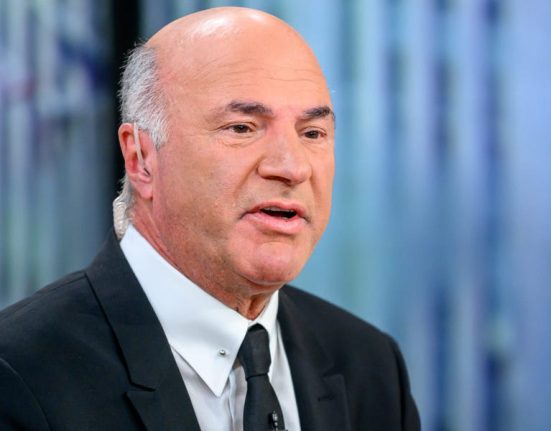Social service groups are working to avoid a “catastrophic” loss of shelter after Gov. Jeff Landry vetoed $1 million in funding allocated to Catholic Charities of Acadiana earlier this week.
Gov. Jeff Landry’s veto of funds for Catholic Charities of Acadiana put into sharp focus the lack of emergency shelter in Lafayette and the funding needed to sustain it long term.
“We have not been in a sustainable pattern in operating homeless shelters,” Catholic Charities of Acadiana CEO Kim Boudreaux said Thursday during a panel discussion on housing and homelessness.
Ratcheting pressure is the Supreme Court’s ruling upholding the constitutionality of bans on homeless encampments and sleeping outdoors in the Grants Pass v. Johnson case.
“[We are] disappointed and fearful of the precedent this ruling will set,” Elsa Dimitriadis, executive director of Acadiana Regional Coalition on Homelessness and Housing, said in a press release responding to the Supreme Court decision.
Homelessness has risen locally and nationally and has become much more visible in Lafayette which lost shelters in recent years and has struggled to coalesce on a funding strategy.
Catholic Charities runs St. Joseph Shelter, Acadiana’s largest shelter and the only one available to single adults. Landry’s veto came just as Catholic Charities has been preparing to move shelter operations back to its St. John Street location, which recently underwent $1.8 million in renovations funded by a state grant.

Without the $1 million in state funds, that move might not happen and shelter operations may stop or be drastically reduced, according to Boudreaux.
The vetoed money represented a stopgap as Catholic Charities has tried to find long-term funding. The agency received $1.5 million in the last budget, which propped up the emergency shelter in 2023. The cut will hit Catholic Charities’ budget beginning July 1.
Landry targeted Catholic Charities because of the agency’s immigration services, the Louisiana Illuminator reported late Wednesday. Landry, a hawk on immigration, accused Catholic Charities of having a mission “to support the influx of illegal aliens into our country.”
Catholic aid organizations across the country have faced those accusations from anti-immigration groups.
Bishop Douglas Deshotel of the Diocese of Lafayette pushed back on Landry’s allegation, and urged the governor, a practicing Catholic, to reconsider his decision.
“[He conflates] the fact that we take care of the homeless and feed the hungry as being that we are aiding and abetting illegal immigration or illegal immigrants, when the large majority of the clients that are served by Catholic Charities of Acadiana are from Acadiana. They’re homeless people here,” Deshotel said in an interview with News15 Thursday.
Of the 410 people sheltered by Catholic Charities last year, 81% came from Acadiana with another 10% from other parts of Louisiana and 9% coming from out of state, Catholic Charities reported in a press release this week.
Despite the political overtones, local aid groups are “cautiously optimistic” that the shock of Landry’s veto may spur immediate local action and mark a watershed moment in how Lafayette addresses housing insecurity in the long run.
“Already we were in a crisis, and this just puts [it] in the next level. But I see this as an opportunity,” Boudreaux said Thursday.
Early talks with Lafayette Consolidated Government have not yet yielded a short-term solution, but the coalition of homeless service groups has pegged its hopes on a pool of unspent pandemic relief funds distributed by the U.S. Department of Housing and Urban Development.
More on housing and homelessness
The funding loss could force Catholic Charities of Acadiana to cut back shelter operations or stop them altogether.
Last month, Edie Couvillon Aymond took over the leadership of 232-HELP, the primary point of contact for people in need in Acadiana.
A year after settling a lawsuit over panhandling restrictions, Lafayette police may again target panhandlers under a new state law.
Lafayette holds a little more than $2 million in HOME-ARP grant funding, meant to shore up housing support during the early throes of the pandemic, that is not appropriated. More than half was committed for other homelessness services, but the unpledged funding could chew up much of the gap created by Landry’s veto.
Mayor-President Monique Boulet told The Current this week her administration was “looking into” whether it would commit local funds to backstop the vetoed money.
Federal funding for emergency shelter has dried up over the last decade as HUD has prioritized programs that provide both permanent housing and support services for conditions that often attend homelessness, like severe mental illness, addiction or disabilities.
Millions in pandemic stimulus dollars that stood up shelter operations during the pandemic are exhausted.
Through its Homelessness to Housed initiative, Catholic Charities convened local business, nonprofits and government agencies over the last year to develop a plan to produce housing that could aid in transitioning people out of homelessness.
Panelists recapping the initiative sketched out the broad strokes of a housing action plan, checking off several projects that could prove to be workable pieces of a complex solution set.
Plans for more workforce housing projects, a crisis response center aimed at mental health interventions and a housing navigation center are among the concepts on the horizon.
“There’s dirt turning,” Alex Lazard, executive director of the Lafayette Public Trust Financing Authority, said of the sundry projects in the works, asking for grace and patience on the big picture question of housing access.
Lafayette faces pressures across the housing space, and not just in providing emergency shelter. Prices have risen for renters and homeowners alike. What housing is affordable is often dilapidated. Queues for federal housing vouchers are several years long, according to ARCH’s Dimitriadis.
But none address the immediate problem: dozens without access to temporary shelter.
Some 40 people are turned away each night from the shelter at risk of closing, Boudreaux said Thursday. And the problem is likely to get worse without finding a replacement for the $1 million cut by Landry.
“This isn’t just a cut to Catholic Charities. It’s a cut to Lafayette, and it’s a cut to Acadiana,” Boudreaux said. “Y’all don’t want to see Lafayette without a homeless shelter.
Read Lafayette stories that matter
Sign up for The Current’s free newsletter.







